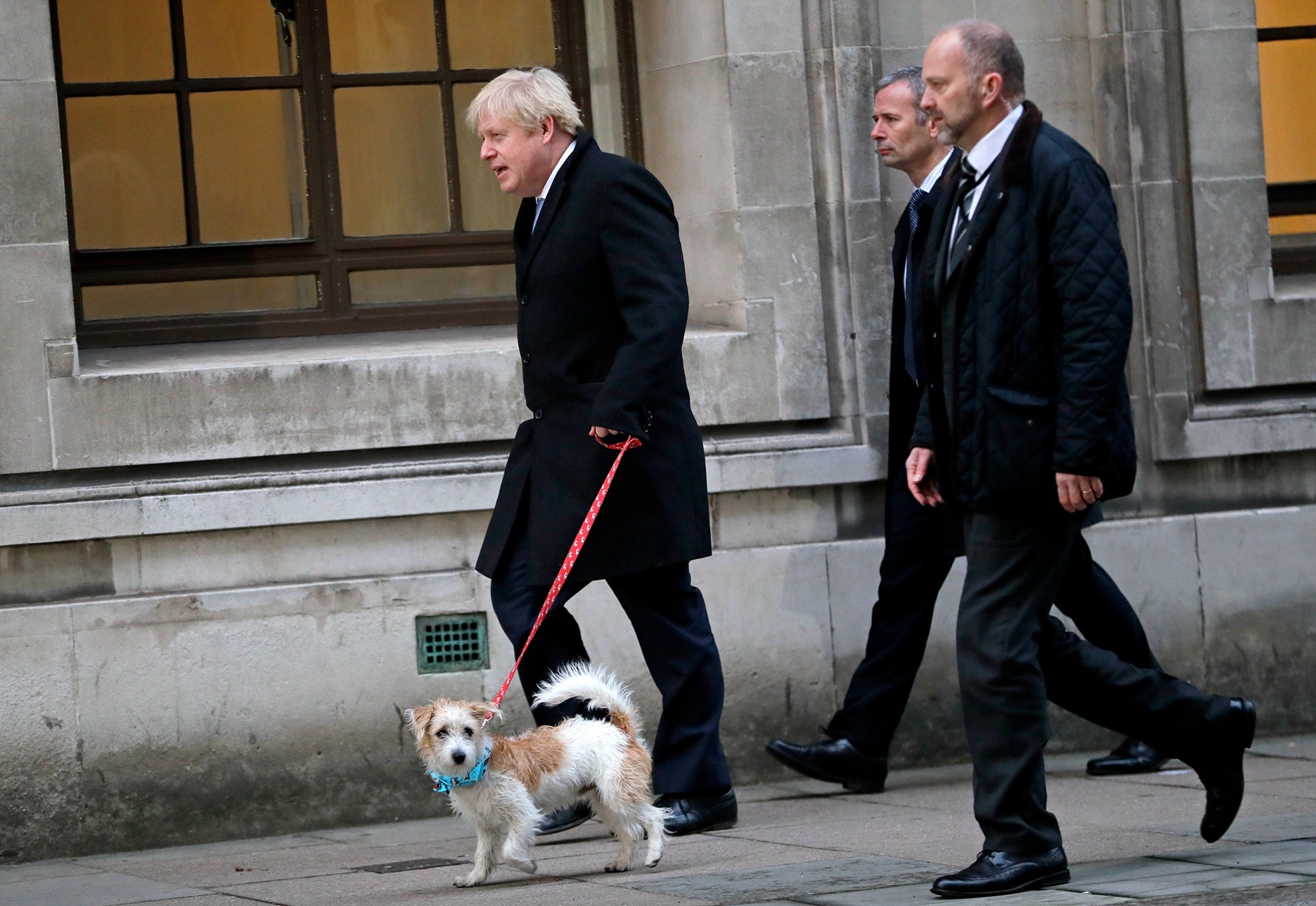On December 13, local time, the British “Christmas Election” came to an end. The Conservative Party led by British Prime Minister Boris Johnson won an overwhelming victory, winning 365 seats and obtaining an absolute majority of 650 parliamentary seats in the parliament. The general election expanded by 48 seats.
This is a victory for Johnson anyway. Not only did Johnson spend all his power trying to persuade voters during the election campaign, he even used a remake of the British romantic comedy classic “Love Actually” to express affectionately to voters “Your vote has never been more important He said that “sufficient” about the Brexit process has gotten into the hearts of many British people.
Johnson’s return to the European Union for greater initiative in the Brexit process is a good thing for a three and a half year Brexit farce. However, this is only the beginning of the challenge for Johnson’s political career as British Prime Minister.
Brexit is not “getting done”
This election was triggered by the difficulty of achieving Brexit, but Johnson after the victory of the election did not fully get the guarantee that he “gets” Brexit. After winning the election with “get brexit done”, the first issue is how to realize this most important promise.
Brexit will not be completed by the election. Even with the Conservative party’s substantial expansion of the majority in the parliament, Johnson still has a hard time completing the rhetoric of “signing a UK-EU trade agreement by 2020.”
Johnson failed to reach the Brexit agreement on October 31 because even in the Conservative Party, many lawmakers believed that it should not be risked that Brexit would not be passed without confirming that the relevant Brexit legislation could be passed smoothly. Risks remain Brexit. The process of legislation alone is another game in parliament.
Problems at the Northern Ireland border checkpoint will still be obstacles. During the election, Johnson guaranteed that goods transported between Britain and Northern Ireland would not be subject to any inspections and would not be subject to tariffs. However, according to the agreement reached between him and the European Union, about 75% of the goods will be levied tariffs and subject to rules of origin inspection, many of which are the lifeblood of SMEs on both sides of the Irish Sea.
Negotiations with the EU are also difficult. EU chief negotiator Michel Barnier, Brexit trade negotiations cannot be completed in 11 months, and Johnson’s timetable is “unrealistic.” It can be seen that Johnson needs some “miracles” to fulfill his promises under internal and external pressure.
I do n’t know what Brexit is after Brexit
Either way, Johnson’s victory means Brexit is at least one step closer than before. However, if Johnson completes Brexit during his term, he will have more problems, not fewer.
The Brexit process has brought huge political uncertainty, and business circles are full of doubts about continued investment and trade in the UK.
The UK is seeking to maintain continuity with the existing EU trade agreements with a number of countries. In 2018, the UK’s trade with these countries accounted for about 11% of the UK’s trade in goods and services. So far, Britain has negotiated 19 agreements involving 50 countries, which will take effect after the transition period ends.
The EU as a whole accounts for nearly half of British trade, and the United States accounts for about 15%. The trade agreements between the two largest trading partners have not yet been resolved. It is difficult to predict how this will affect British trade after Brexit.
In addition to trade chaos, Britain may even face the challenge of sovereignty and integrity due to Brexit. During the entire process of Brexit, Northern Ireland was considered by the outside world as a “sacrifice” to Brexit, and because of historical reasons, it was more prone to social unrest due to Brexit. Now Scotland’s “brexit” has become a topic again.
In October, Nicola Sturgeon, the chief minister of the Scottish Government and leader of the Scottish National Party, said that before the end of the year, the British government will formally be asked to agree to a second independent referendum in Scotland and a “must” referendum next year. In the 2016 referendum on Brexit, both Scotland and Northern Ireland voted to stay in Europe, and recent polls show that a greater proportion of people in both regions support leaving the United Kingdom and protecting their status in the European Union.
Irish Prime Minister Leo Varadkar has been required by the country to hold a “unified referendum” within the next 5 years under the 1998 Belfast Agreement. Seeing that Northern Ireland was allowed to remain in the EU’s customs territory in the Johnson agreement, the call for Scotland to accelerate the process of “brexiting” has become increasingly high.
Johnson, as one of the main promoters of the Brexit referendum, boasted too much of Haikou’s prosperity after Brexit. After persuading voters to leave the European Union, Britain will be more proactive in trade negotiations and it will not be enough to regain the dignity of Great Britain. Johnson has even said recently that Britain will usher in a “newborn tide” after Brexit.
The possibility of economic setbacks, the danger of national divisions, and Johnson’s Brexit vision are inevitable. Johnson ’s promise to govern will be tested by then, and that is the time to really test his ability to govern.
What can be achieved by political division
The reasons for British voters to support Johnson overwhelmingly are probably that they are extremely tired of the issue of Brexit. They no longer want to see British politics abducted by this, which has a great emotional effect. However, how can the political cracks and conflicting public opinions created by Brexit in recent years and the crisis of trust caused by political struggles be repaired?
For more than three years, the conflict between the Conservative Party and the Labor Party, and between the Brexit and the Remaining Europeans need not be mentioned, and the British conservative camp itself has also been torn apart during the two Conservative governments. Since Johnson took office, this trend has not eased, and Conservative MPs criticizing his Brexit agreement have been squeezed out of Congress. Today, even two “Brexit big brothers” Johnson and Nigel Farage have become suspicious of the Brexit agreement, which also called for voters to support the Brexit party instead of the Conservative party in the election.
It is undeniable that this victory will give Johnson a greater say in the Conservative Party and even the British government, and will help him to further “return” to politics. However, this is not enough for him.
Behind this farce of Brexit, there are the multiple contradictions of the British economy and society, and it has also witnessed the failure of the democratic political system implemented in Britain for hundreds of years. Can the cost of separation caused by Brexit be a wake-up call for real system reform in Britain? Johnson may be able to bring Brexit to Britain, but then?












